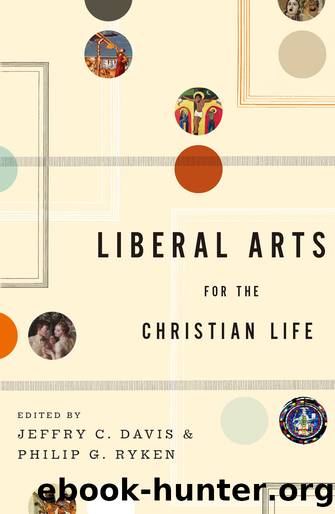Liberal Arts for the Christian Life by Jeffry C. Davis

Author:Jeffry C. Davis [Jeffry C. Davis and Philip G. Ryken]
Language: eng
Format: epub
ISBN: 9781433524059
Publisher: Crossway
Published: 2012-06-19T00:00:00+00:00
INTELLECTUAL VIRTUES IN GENERAL
A virtue is an acquired habit of excellent functioning in some area of life that is challenging and important. We customarily think of virtues in connection with the moral life. Self-control of our appetites, fair dealing with fellow citizens, and management of routine fears require that we cultivate temperance, justice, and courage, respectively, if we are to live excellent lives. Just as one swallow does not a summer make, so one act of self-control, or compassion, or generosity does not a moral virtue make. No one is counted as virtuously generous for having once dropped five dollars into a Salvation Army kettle at Christmas. Rather, as Aristotle taught, one must be reliably disposed to give the right amount, to the right person, for the right reason, in the right circumstances. This is not easy, requiring as it does the successful integration of heartfelt regard for the beneficiary, right judgment, and well-timed, tactful action. Virtues are deeply anchored habits of the whole person that we can be reliably counted upon to display in appropriate circumstances. Virtues (and vices, unfortunately) thus become ingredients of our character, of who we are at our core.
We are not born morally or intellectually virtuous, nor does virtue develop in us automatically. Traits such as generosity, forgivingness, and intellectual humility form no part of our straight-from-the-factory, standard-issue equipment. In fact, Christianity teaches that our default mode as humans tends in opposite directions, toward stinginess, grudge bearing, and intellectual pride. This is why the apostle Peter commands that we make every effort to add to our faith virtue (2 Pet. 1:5). Intellectually, this means that the renewal by the transformation of our minds, of which Paul also speaks (see Rom. 12:1â2), calls us, among other things, to exchange self-deception for unflinching honesty about our faults, close-mindedness for a willingness to hear thoughtful objections to our preferred ways of thinking, and biased or prejudicial reading for charitable and interpretively sensitive reading of authors with whom we disagree.
While Scripture clearly teaches that we are reasoning beings, it also stresses that we are not purely cerebral, cogitating machines, like Star Trekâs Spock or Data. We are instead complex beings that combine intellectual, emotional, and appetitive elements. In Genesis, God laments concerning man that the thoughts of his heart were only for evil (Gen. 6: 11â12). In the Gospels Jesus talks of understanding with our hearts, and of our hearts being slow to believe (Mark 10:5; Luke 5:22). Paul likewise speaks of âhaving the eyes of your hearts enlightened, that you may know what is the hope to which he has called youâ (Eph. 1:18). Here, the heart refers to the center of our loves, cares, concerns, emotions, and desires: what we collectively refer to as âthe affections.â Scriptureâs assigning to the heart cognitive tasks such as believing, understanding, and knowing points to the intimate connection between heart and head in gaining intellectual virtues and intellectual goods.
The clear teaching of Scripture is that we function optimally in intellectual pursuits,
Download
This site does not store any files on its server. We only index and link to content provided by other sites. Please contact the content providers to delete copyright contents if any and email us, we'll remove relevant links or contents immediately.
Liberal Arts for the Christian Life by Jeffry C. Davis(80)
Processing the Plan of God Through Prayer by Mark Brazee(69)
To Begin at the Beginning by Copenhaver Martin B.;(69)
Stay in the City by Gornik Mark R.;Wong Maria Liu;Keller Timothy;Acevedo Peter & Miriam Yvette;(66)
Principles of Catholic Social Teaching by David A. Boileau(63)
Teaching the Faith, Forming the Faithful by Parrett Gary A.;Kang S. Steve;Packer J. I.;(62)
Approaching the Study of Theology: An Introduction To Key Thinkers, Concepts, Methods And Debates by Anthony C. Thiselton(57)
Two Tasks by Charles Malik(54)
Life Explore Soul by Sakulchai Sikitikul(50)
Why Do We Suffer and Where Is God When We Do? by Valerie G. Rempel(48)
God's Greater Glory by Bruce A. Ware(37)
